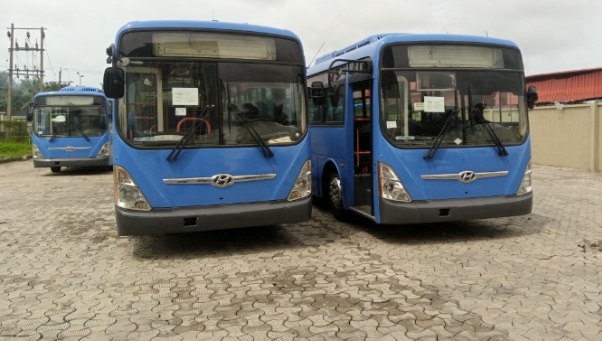The Federal Government is considering the use of Compressed Natural Gas (CNG), which the country has in abundance to reposition the transportation sector in cities across the country.

Minister of State for Transportation, Prince Ademola Adegoroye, said this in a statement by the Director, Press and Public Relations of the Ministry, Mr Eric Ojiekwe, on Tuesday, September 13, 2022, in Abuja.
Adegoroye made this known when he received the report on “Implementation-Ready Report on National Strategy Development for the Adoption of Compressed Natural Gas (CNG)-based Transportation System in Nigeria’s Urban Cities” in Abuja.
The minister, while commending his erstwhile colleague, Sen. Gbemisola Saraki, assured that the report would be given prompt attention.
“I appreciate that the last minister who was here, Sen. Gbemisola Saraki, had the initiative to set up a committee to work on this, I think it is a wonderful Initiative.
“I assure you that Nigerians must say something about us that when we were here, we took steps to getting things done.
”And this things are in tandem with what the world wants or what the world desires at this time,” he said.
According to Adegoroye, greenhouse gas emissions pose health and dire environment consequences and Nigeria cannot afford to lag behind.
He said this was especially due to the fact that Nigeria is a signatory to Green House Emission Policy aimed at reducing carbon emissions in the environment.
While presenting the report to the minister, the ministry’s Permanent Secretary, Dr Magdalene Ajani, said that the report was sponsored by World Bank and done by Nigeria Erosion and Watershed Management Project (NEWMAP).
Ajani said this was done through the Federal Ministry of Environment with highlights on strategic steps to take in the adoption of CNG vehicles in the transportation sector in the country.
“It will help us in kick-starting the revolution in the change of the transport sector, with vehicle conversion to CNG on the adoption of CNG vehicles, for our road transport mode within the urban city to start with.
“Original Equipment Manufacturers in couple of years down will probably not be supporting vehicles that are powered by diesel or gas as everyone is moving towards Electric Vehicles (EV).
”The report takes into cognisance of how Nigeria can move from diesel and Premium Motor Spirit (Petrol) to natural gas and in about 10 to 15 years,” Ajani said.
In May 2019, the Federal Executive Council approved a National Action Plan to reduce short-lived climate pollutants.
The plan, developed by the Federal Ministry of Environment, aims to improve air quality and reduce Nigeria’s contribution to climate change.
This will be done through 22 specific mitigation measures in eight source sectors – transportation, cooking and lighting in households, industry, waste, oil and gas, agriculture and power.
The Federal Ministry of Transportation is vested with the task of coordinating the implementation of these mitigating measures.
By Lucy Ogalue
